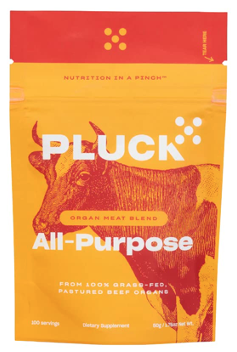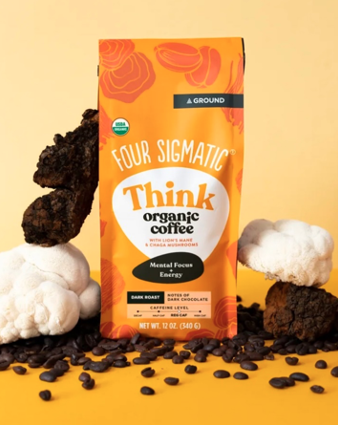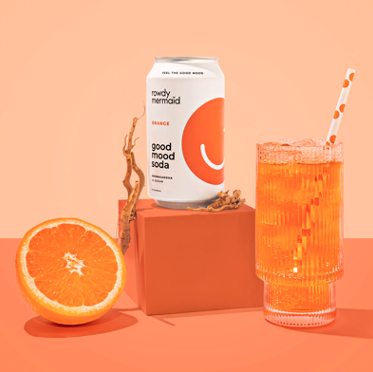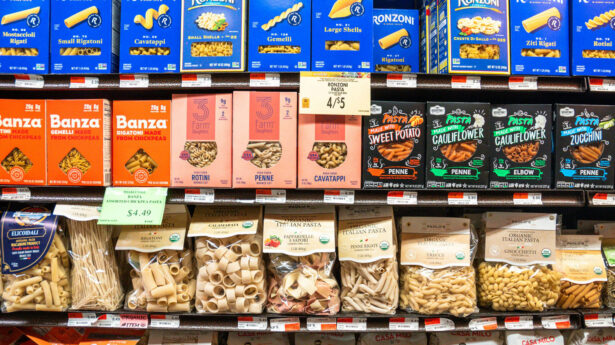
Insight
More Than a Meal: A Conversation About Food and Mental Health
IN OUR WORK MAPPING THE FUTURE OF AN EVER-EVOLVING FOOD AND BEVERAGE LANDSCAPE, we continually see patterns and connections between mental health, diet and lifestyle.
We are seeing a growing body of research that reinforces the potential for intentional nutritional interventions to support mental health. What does this mean for brands as they seek opportunities to develop positive impact products?
According to estimates from the National Institute of Mental Health, one in five U.S. adults experienced mental illness in a given year, a significant percentage of our population that doesn’t even capture mental illness in adolescents. As researchers and medical professionals continue to look for solutions to help with this major societal challenge, there appears to be a role that food and beverage can play in addressing some of the root causes.
The conversation around the impact of nutrition on overall health is robust and has been in the zeitgeist for years. The more recent emergence of mental health in conversation, the media, and medical research is bringing growing attention to an area where our understanding and awareness is still developing. It is inherent but bears to be called out: mental health IS part of the whole health equation. The stigma around care for mental health is improving, but there are still fundamental gaps in perceptions and knowledge.
If we closed the gaps and helped consumers make the link between nutrition and the potential for positive outcomes on mental health disorders, how might this play out in the food and beverage landscape?
Scientific research continues to support our understanding of the brain and we are learning more about its care, including what to feed it. The adult human brain is only about 2% of total body weight but uses 20% of the body’s energy. And where does this energy come from? The foods and beverages we consume.
Current research from human studies supports 12 key nutrients as providing positive effects in the treatment or prevention of depressive disorders. These can be referred to as ‘antidepressant nutrients’ and include:
- Folate
- Iron
- Long chain omega-3 fatty acids (EPA, DHA)
- Magnesium
- Potassium
- Vitamin B6 and B12
- …and more
Analysis of nutritional data from the USDA revealed that foods such as leafy greens, various seafoods, and organ meats were found to contain high levels of antidepressant nutrients. Incorporating more of these foods into the diets of those with mental health issues could be supportive to healthy brain function and offers a unique treatment opportunity for health care professionals to incorporate into their work with those impacted. (World Journal of Psychiatry)
This is what the research shows, but the question that’s on our minds is what do consumers think?
- 74% of consumers say their mental health and well-being is impacted by their food and beverage choices, according to the International Food Information Council’s 2023 Food and Health Survey.
- That same study reported that about a quarter of consumers are seeking mind-related benefits from their food and beverages, like Brain function (25%) and Emotional / mental health (24%), the latter of which has increased in importance from previous years and is more sought after by younger generations.
- 40% of consumers would like their diet to help maintain healthy brain function, and 26% to improve their mood, according to global food and drink research from Mintel.
Based on the above data and supported by findings from Upland’s own research with consumers, this is clearly an emerging area of interest that we are tracking. In our work, we seek to understand the barriers that will need to be overcome for food and beverage products that support mental health to gain significant market traction. And how can mental health support be elevated to a recognized, priority benefit? Let’s take a look at existing brands and products at various stages of introduction and see what we might learn from how they are positioned.
Pluck offersorganic seasonings made with a proprietary blend of grass-fed organ meats that deliver “Nutrition in a Pinch”.

The focus of their messaging centers on the benefits of:
- Great Taste which is especially important for a seasoning that is intended to add flavor to other foods
- Picky-Eater Friendly these products don’t just add taste, they also provide “hidden nutrition” for picky eaters (regardless of age)
- Ease this isn’t a new supplement to add to the cabinet or a smoothie powder that requires blending, it is a simple swap for salt and pepper
- Reducing the Ick-Factor so consumers can reap the nutritional benefits of organ meats without having to prepare organ meats (not everyone’s cup of tea). While organ meats ranked high on the list for antidepressant nutrient density, this product does not specifically call out the brain benefits of consumption and instead touts a frequent, healthy dose of vitamins and minerals to support overall organ health with more bioavailable nutrients.
Four Sigmatic offers a variety of mushroom-based products. As the Founder Tero Isokauppila explains, “We started as a hard-to-understand brand ‘on shrooms’ but now we’re doubling down on our true calling of delivering you mental performance and wellbeing.”

The focus of their messaging centers on the benefits of:
- Function linking mushrooms like reishi, chaga, and lion’s mane which are known for their potential health benefits such as enhanced mental focus and mood to immunity and gut support
- Energy from coffee plus mushrooms provides an additional benefit of a lower caffeine level than regular coffee. We are hearing from consumers more and more about how they want to limit their daily caffeine intake to avoid jittery feelings and possible sleep disruption.
- Convenience and easy adoption – the coffees are available in a variety of formats for simple daily use, from instant to ground to pods they cater to just about any type of at-home brew methods.
- Overcoming aversions much like organ meats, mushrooms are not everyone’s favorite thing to eat in a whole food form. Four Sigmatic’s products allow consumers to reap thebenefits of mushrooms without their associated taste and texture that some don’t find appealing
Rowdy Mermaid offers functional beverages including kombucha and soda. Last September they launched their line of Good Mood Sodas that are low-sugar, low-calorie and infused with 200mg of stress-relieving ashwagandha extract.

The focus of their messaging centers on:
- Mood-boosting ingredients like ashwagandha with the purpose to uplift spirits and support emotional well-being
- Guilt-free enjoyment in this better-for-you option is ideal for those who like soda but don’t like the sugar and calories this is
Looking at these three examples, it makes us wonder How can brands help products with mental health benefits better resonate with people and ultimately disrupt a more mainstream market?
There are clearly some ‘antes’ in this space. The above examples all have a natural positioning with organic (or beyond) ingredients, they are free from artificial additives, and have third party testing to reassure consumers who worry about hidden toxins, especially important for something that is intended for daily use.
But what other attributes do these products share? The above examples are incorporating functional ingredients into common and frequently used categories, like spices, coffee and soda. As Four Sigmatic explains, “We infuse functional mushrooms into everyday products you love.” Pairing new and unusual ingredients with familiar formats, can help consumers wrap their heads around the concept and focus on the health benefits rather than the peculiarities. This is one strategy to help overcome believability issues, by fusing the benefits of real health impacts with convenience and taste.
Upland will continue to track this exciting movement at the intersection of mental health nutrition and innovation in our ongoing work around the future of food and beverage.



